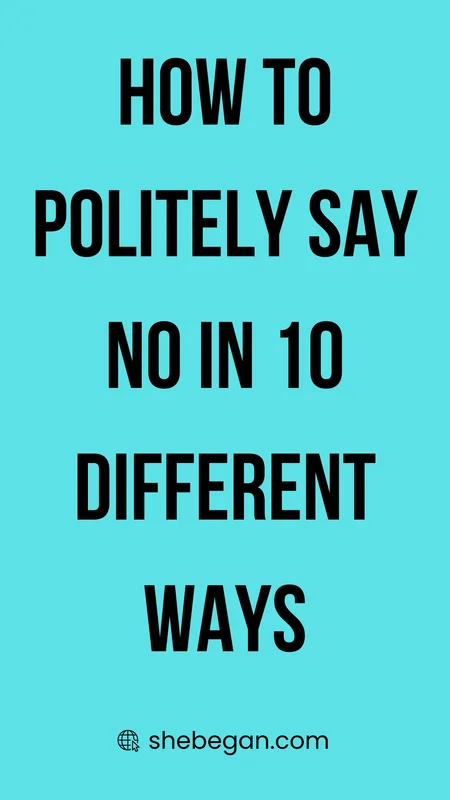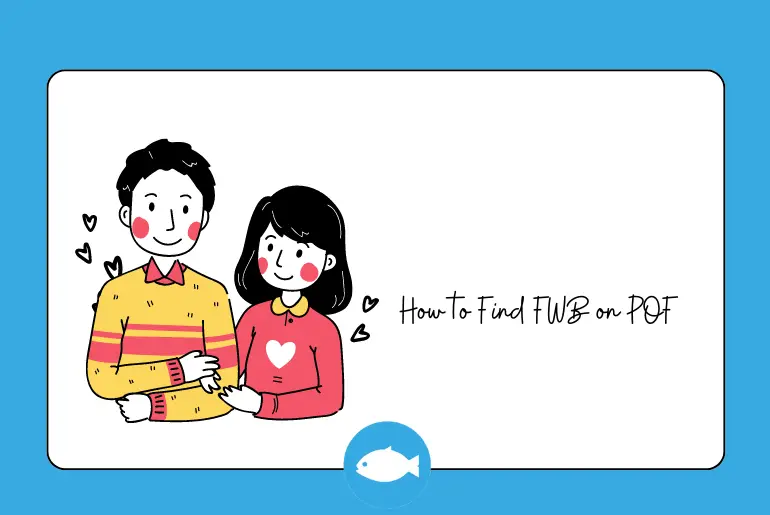As simple as the word no is, it can destroy a relationship or foster a closer relationship. So, knowing how to politely say no would help a lot, especially when you need to reject an offer, appointment, help, relationship, etc, and more importantly, you don’t want to sound rude.
Now, how do you say the two-letter word no politely, no matter the situation or scenario you find yourself in? You can politely say, “Thank you for considering me for this function. For now, I can’t process further jobs, but kindly stay in touch” to reject a job offer.
Don’t worry; this post will discuss different polite ways to say no and maintain a good relationship. Also, I will answer questions like when you should say no, why saying no might be hard or difficult for you, etc.
Why Is It So Difficult For You To Say No?
Saying no can be challenging due to various psychological and social factors. People often fear rejection or disappointing others, leading to a tendency to overcommit.
For example, if you grow up in an environment where saying no to elders is considered a rude attitude and frowned upon, you probably will grow up finding it difficult to say no to others, especially to people older, even when you are uncomfortable with saying yes.

The desire to be liked and the fear of conflict contribute to the difficulty in refusing requests.
When You Should Say No
Saying no is appropriate when a request conflicts with your priorities, values, or personal well-being.
When you know your limits and understand your commitments, if any request, relationship, or assistance negates them, then you have to say no to prevent acting against yourself.
Your values, commitments, and limits are key indicators of when it’s time to decline a request, as knowing when to say no is essential for maintaining personal boundaries and managing time effectively.
Why It’s Important To Say No
Here are some important reasons why you need to know how to say no politely when you need to:
- Saying no is important for maintaining a healthy work-life balance.
- To preserve personal well-being and avoid burnout, you need to learn how to say no.
- It allows you to focus on your priorities and prevents overcommitting, increasing productivity and reducing stress.
- Learning to politely communicate your limits by saying no fosters respect and understanding in both personal and professional relationships.
- Also, to achieve your personal goals and improve yourself, you need to learn how to say no politely.
How to Politely Say No In 10 Different Ways

1. Express gratitude: “Thank you for considering me, but I’m unable to commit at this time.”
This phrase allows you to decline gracefully without burning bridges in professional or personal settings. It demonstrates your professionalism and self-awareness, emphasizing that your decision is not a reflection of the request’s value but rather a result of your current circumstances.
Furthermore, it proves that you take commitments seriously and prefer not to overexert yourself, maintaining the quality of your contributions. By expressing your current limitations with appreciation, you navigate the situation tactfully, preserving relationships and leaving room for potential collaboration down the road.
2. Provide alternatives: “I can’t right now, but perhaps .”
When faced with a request but unable to fulfill it, responding with “I can’t right now, but perhaps ” demonstrates a considerate and solution-oriented approach.
By offering an alternative solution or suggesting another person who may be able to assist, you convey your inability at the moment and show a willingness to help find a resolution.

3. Be honest and direct: “I appreciate the offer, but I must decline due to .
Expressing gratitude while declining an offer is a delicate balance. Using this phrase allows you to communicate your gratitude while being transparent about your refusal.
Providing a brief explanation helps the other person comprehend your decision without feeling rejected. Moreover, this approach reinforces your respect for the relationship, making it more likely that the person will approach you for assistance in the future.
4. Use a softening statement: “I wish I could, but unfortunately, I have other commitments.”
When you find yourself unable to commit to a request, to say no politely, you simply say, “I wish I could, but unfortunately, I have other commitments,” This communicates your desire to help while acknowledging your current limitations.
This response is considerate and truthful, allowing others to understand that your decision is not a reflection of your willingness to assist but rather a result of prior obligations. When you express regret and explain the situation, you maintain positive connections and leave the door open for future collaboration when your schedule allows.
5. Set clear boundaries: “I’ve reached my limit for now and need to decline additional tasks.”
This is a straightforward and honest way to say no politely. It conveys a sense of responsibility and self-awareness, demonstrating that you prioritize quality over quantity in your commitments.
By clearly stating your limits, you set expectations and foster a healthy work or personal relationship, ensuring that your contributions are meaningful and sustainable in the long run.
6. Prioritize yourself: “I need to focus on my well-being right now, so I have to decline.”

When expressing the need to decline due to a focus on personal health, saying, “I need to focus on my well-being right now, so I have to decline, ” is a great way of saying no politely.
It emphasizes the importance of self-care and signals that taking on additional tasks may compromise your mental or physical health. This response also encourages others to prioritize their well-being, fostering a culture of understanding and empathy.
7. Refer to existing commitments: “I have prior commitments that I need to honor, so I can’t take on anything else.”
When you have pre-existing commitments, and you need to say no to an offer, saying, “I have prior commitments that I need to honor, so I can’t take on anything else,” conveys a sense of responsibility and reliability.
This response sets a positive example of accountability and integrity, reinforcing the importance of responsibly managing one’s time and commitments.
8. Acknowledge the request: “I understand the importance of this, but unfortunately, I can’t commit at this time.”
Acknowledging the importance of a request while expressing your inability to commit is a respectful way to handle the situation. “I understand the importance of this, but unfortunately, I can’t commit at this time” communicates your awareness of the significance of the task or request.
9. Express regret: “I appreciate your understanding; however, I must decline.”
This way of saying no reinforces your decision without leaving room for ambiguity. It gives respect for the other person’s understanding while making it clear that your current circumstances prevent you from taking on additional responsibilities.
10. Be firm and polite: “I regret that I’m unable to help at this time.”
When unable to provide assistance, expressing regret can help soften the impact. Using the phrase, “I regret that I’m unable to help at this time,” shows a genuine sense of disappointment about your inability to fulfill the request. It shows that you value the relationship or collaboration but are currently unable to contribute.
Wrapping Up
Saying no is a skill that requires practice and self-awareness. This will help you navigate difficult situations without burning bridges and fostering healthy relationships.
If you find yourself in any situation where you need to say this post will serve as a guide to say no politely.






